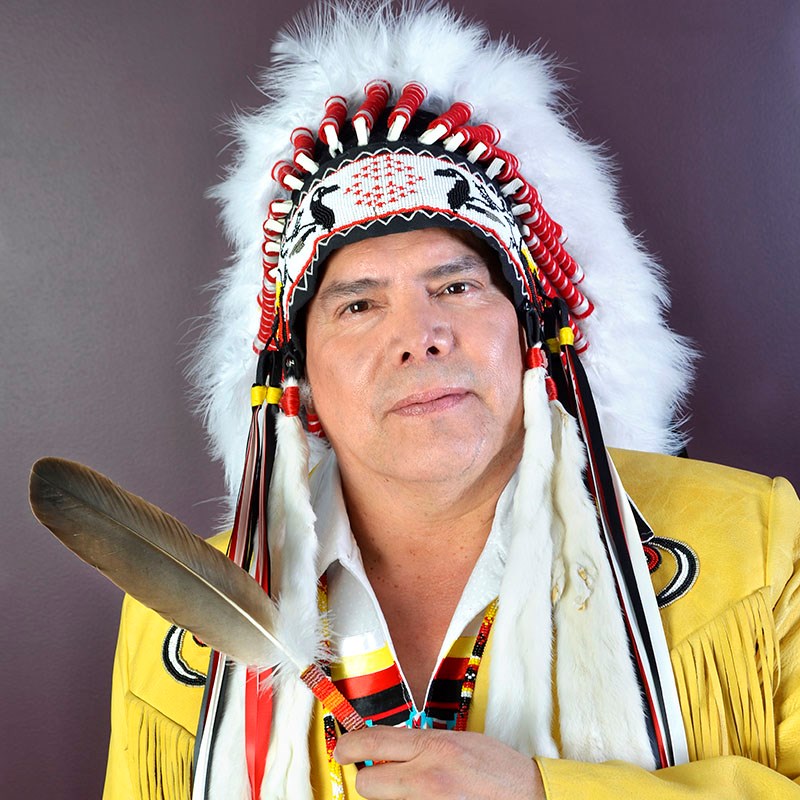Have you ever heard the Steven Adler quote, “You can have all the riches and success in the world, but if you don’t have your health, you have nothing”? This statement rings true for many people, especially those living with chronic health issues, mental health disorders, or battling devastating illnesses such as cancer. In Manitoba, the people battling these health concerns will often be status First Nations people. At least that’s what a new report, The Health Status of and Access to Healthcare by Registered First Nation Peoples in Manitoba, would have us believe.
The 200-plus page report was released earlier this week by the Manitoba Centre for Health Policy and the First Nations Health and Social Secretariat of Manitoba. This report is important, as it’s the first comprehensive look at the health of First Nations people in our province since 2002.
This report doesn’t share good news about our health. The findings won’t surprise First Nations leaders – the report shows that the gaps between First Nations health and life expectancy and the health and life expectancy of non-Indigenous Manitoba residents continue to widen.
Leaders from the province and from Canada need to take an immediate look at the health of the First Nations people living in this province. Our province is a great place to live for many people, however, for First Nations people the same cannot always be said.
Some of the startling statistics shared in the report include the fact that First Nations people have a much shorter life expectancy that other Manitoba residents – for females, First Nations women can expect to live to age 72 while non-Indigenous females in Manitoba live to age 84. First Nations men can expect to live until age 68 while non-Indigenous males live to age 79. Imagine knowing that simply being a First Nations person means you will die earlier than your non-Indigenous friends and neighbours.
Screening for cancer is much lower among First Nations people in Manitoba. Only 35 per cent of First Nations women are screened for breast cancer while 59 per cent of the non-Indigenous population receives screening. Only nine per cent of First Nation people are being screened for colorectal cancer while 33 per cent of non-Indigenous peoples are being screened. Screening programs help people to detect cancers early and get treatment before they progress—it’s clear that current screening programs are not meeting the needs of First Nations people and will need to adapt.
First Nations people have higher rates of drug and substance abuse disorders, mood and anxiety disorders, psychotic disorders, and suicide attempts. The statistics on suicide attempts should be particularly alarming with 247 of 100,000 First Nations people being hospitalized for attempting suicide in comparison to 42 of 100,000 non-Indigenous peoples being hospitalized for the same issue. These statistics are also problematic because they capture a smaller number of people than those who actually attempt suicide—the report was not able to include statistics for people receiving treatment at the federally run/funded nursing stations in our First Nations.
The disparity in wellness laid out in this comprehensive report is a moral crisis but it’s also evidence of an economic burden on governments responsible for funding health services. The growing gaps between the health and wellness of First Nations and non-Indigenous peoples in Manitoba is an emergency.
All Manitoba residents should care about the disparities. When First Nations people do well, we all will do well. It is essential that we use this knowledge to take steps to fix our health care system.
As leaders, we know the situation is critical. We see evidence of the emergency in First Nations like God’s Lake, which experienced five suicides over the summer months and at least one suicide attempt every day. No parent should ever have to bury their own child, but it’s happening far too often in some of our communities.
This report should be an immediate call to action to eliminate racism in the health care system and to address the social determinants of health that continue to impact First Nations people. We must work together across all levels of government to stop the intergenerational violence and neglect that occurs in our society – First Nations people need basic services such as clean drinking water, access to education in their communities, land-based healing/treatment programs, and safe, stable housing for individuals and families.
A hot topic these days is “reconciliation.” It’s an important idea that we need to work toward, but it’s essential that we see action based on the concept. We need true investments to eliminate racism. We are currently permitting First Nations people to die from racism.
It’s clear that there are caring Canadians who want to advocate for our well-being. I encourage you to put pressure on your political leaders at the provincial and federal levels. Tell them that the health of your First Nations neighbours matters to you and that you would like action on this issue. Encourage your political leaders to work together with First Nations leaders so that parents don’t have to continue burying their children.
To fellow political leaders reading this, let’s agree that the time for action is now. Let’s work together to close the gap between the health and life expectancy of First Nations people and non-Indigenous Manitoba residents. Let’s build a bright future that will make all Manitoba residents proud.
Garrison Settee is the grand chief of Manitoba Keewatinowi Okimakanka (MKO), a non-profit, political advocacy organization that has represented 26 First Nations in Northern Manitoba since 1981. MKO represents more than 72,000 First Nations people.




